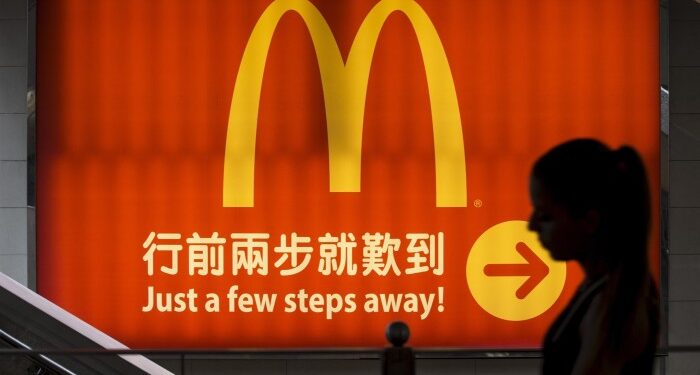Stay informed with free updates
Simply sign up to the Private equity myFT Digest — delivered directly to your inbox.
The world’s biggest private equity groups have been unable to sell or list their China-based portfolio companies this year, as Beijing’s crackdown on initial public offerings and a slowing economy leave foreign investors’ capital trapped in the country.
Among the 10 largest global private equity groups with operations in China, there is no record of any having listed a Chinese company this year or fully sold their stake through an M&A deal, figures from Dealogic show.
It is the first year for at least a decade where this has been the case, though the pace of exits has been slow since Beijing introduced restrictions on Chinese companies’ ability to list in 2021.
Buyout groups rely on being able to sell or list companies, typically within three to five years of buying them, in order to generate returns for the pension funds, insurance companies and others whose money they manage.
The difficulties in doing so have in effect left those investors’ funds locked away, with future returns uncertain.
“There’s a growing sense among PE investors that China may not be as systemically investable as once thought,” said Brock Silvers, chief executive of Hong Kong private equity group Kaiyuan Capital.
He said firms were facing “weakened exit strategies on multiple fronts” in China, including being affected by a slower economy and domestic regulatory pressure.
Many private equity groups expanded their presence in the world’s second-biggest economy as it grew rapidly over the past two decades. Global pension funds and others ploughed capital into the country, hoping to gain exposure to its economic boom.
The 10 firms invested $137bn over the past decade, but total exits amount to just $38bn, Dealogic data shows. New investment by those groups has collapsed to just $5bn since the start of 2022.
The pace of buyout groups’ exits from deals globally has also been slowing. It was down 26 per cent in the first half of this year, according to a report by S&P Global.
But the halt in China exits is particularly stark. It has helped make some pension funds that allocate cash to private equity groups warier of exposure to the country.
“In theory, you could buy cheaply [in China] now but you need to ask what would happen if you can’t exit or if you have to hold it for longer,” said a private markets specialist at a large pension fund that is not currently investing in the country.
A senior executive at a major investment group that commits cash to private equity funds said they were “not expecting a lot of exits for the next couple of years at least” in China.
The data covers Blackstone, KKR, CVC, TPG, Warburg Pincus, Carlyle Group, Bain Capital, EQT, Advent International and Apollo, the 10 largest buyout groups by funds raised for private equity over the past decade, excluding those that have done no deals in China. The data does not include Blackstone real estate deals.
Private equity firms sometimes buy or sell companies without disclosing it, and any such exits may be missing from the data. The firms declined to comment.
The difficulty in cashing out has been one of the main factors deterring international buyout groups from making investments in the country, in addition to Sino-US tensions and the economic slowdown.
Jean Salata, founder of Barings Private Equity Asia, which Stockholm-based EQT bought in 2022, told the Financial Times in June that one reason the “bar is high” for China deals was that investors were asking: “How easy will it be to get liquidity on those investments five years from now?”
Foreign buyout groups used to rely on taking Chinese companies public in the US or other countries in order to exit their investments after a few years. But Beijing has introduced new restrictions on offshore listings since cracking down on the ride-hailing app DiDi, in the wake of its New York IPO in 2021. Listings have slowed significantly since.
In total this year, there have been just $7bn of domestic IPOs in China as of late November, compared with $46bn last year, which was already the lowest total since 2019.
The crackdown has left buyout groups searching for other options, such as selling their stakes to domestic and multinational companies and to other buyout groups. But overseas buyers are sometimes reluctant, in part because of closer US political scrutiny of the mainland.
One of the few recent exits among the 10 firms came when Carlyle sold its minority stake in the Chinese operations of McDonald’s back to the US fast-food retailer last year.
In China’s boom years before the Covid-19 pandemic, there were dozens of exits through both listings and mergers and acquisitions, and foreign private equity played a much bigger role in driving mainland activity.
Goldman Sachs chief executive David Solomon said at a Hong Kong conference in November that one of the reasons investors were “predominantly on the sidelines” over deploying funds in China was that “it’s been very difficult . . . to get capital out”.







